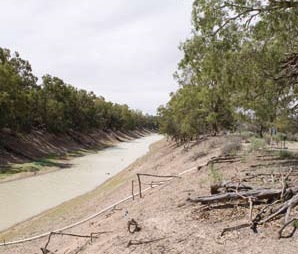Murray Plan slammed
 A new report says the Murray-Darling Basin Plan is set to fail.
A new report says the Murray-Darling Basin Plan is set to fail.
The report by the Wentworth Group of Concerned Scientists has reviewed the progress of the Basin Plan.
It argues that delivering the Murray-Darling Basin Plan “in full and on time” would need serious changes, claiming that water recovery has “stalled” and is not on track to meet targets.
“Even when the 3200 (gigalitre per year) or equivalent outcomes is delivered in full, it will not be possible to achieve the Basin Plan target of maintaining an open Murray mouth in 95 per cent of years without continued dredging of the mouth, except during flood events,” the report says.
It calls for more transparency, better preparations for a future with less water, ensuring supplies to the Lower Lakes, the Coorong and the Murray Mouth to flush out salt, and returning the full 3200GL of water to the system.
“Rivers need water and ‘complementary measures’ such as carp herpes virus, are not a substitute for real water,” the report argues.
The Wentworth Group – which has been arguing against the Murray-Darling Basin Plan since 2012 - says most water recovery was done before the Plan was actually implemented.
The scientists say the recovery effort has now “slowed to a trickle”, while becoming more expensive at the same time.
“Without substantial changes, the Murray-Darling Basin Plan will fail,” the report concludes.
“Thirteen billion dollars of taxpayers’ money will be spent, communities will be hurt, industries will face ongoing uncertainty, and the river systems will continue to degrade.”
The National Farmers’ Federation says the report is “full of inaccuracies and half-truths”.
“The Basin Plan has always had provisions for governments to adjust the target for water recovery if they could find better ways of doing things to achieve the same intended outcomes,” Vice President Les Gordon told reporters, accusing the science group of “throwing hand grenades of mistruths”.
Professor John Quiggin - an Australian Laureate Fellow in Economics at the University of Queensland - says the “depressing outcomes reported by the Wentworth Group are the inevitable result of the policy decision to abandon buybacks”.
“That is, the voluntary purchase of water entitlements from irrigators who are willing to sell those entitlements,” said.
“Buybacks are by far the most cost-effective method of securing additional water for the environment as well as providing a direct benefit to farmers, who can use the proceeds to reinvest in dry-land agriculture or to assist a transition out of agriculture.
“The abandonment of buybacks, combined with a failure to address the needs of irrigation-focused communities in the Basin, represents the worst of all policy worlds.”








 Print
Print